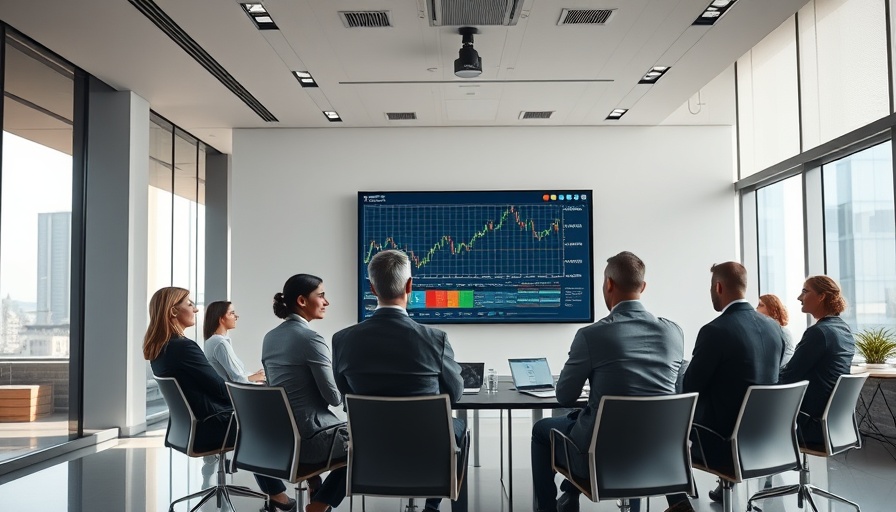
Understanding the Impact of Tariffs on U.S. Corporations
In a recent survey conducted by Chief Executive in collaboration with AlixPartners, a staggering 68% of U.S. CEOs have responded to potential tariff increases by raising their prices. With a significant majority adopting this strategy, the economic landscape is set to change as the implications of these decisions ripple through the market.
Why Are CEOs Raising Prices?
The primary driver behind this response is the uncertainty surrounding tariffs. As the U.S. government contemplates a broader tariff implementation, CEOs are working to mitigate future risks. Nearly half of those surveyed have paused hiring and major business investments, apprehensive about the financial climate ahead. This reaction illustrates a shift from proactive growth strategies to a more cautious approach, focusing on financial reforecasting and scenario planning.
A Shifting Economic Landscape
The counterbalance to these elevated prices is a growing fear of reduced consumer spending. As companies raise their prices, many worry about alienating price-sensitive customers. This situation raises the specter of potentially decreased sales volumes, leading to a further cycle of economic strain across various sectors. According to Steven Dubuc of AlixPartners, companies must prioritize cash preservation and understand their supply chains more thoroughly to navigate these turbulent waters successfully.
Preparing for a Uncertain Future
Interestingly, despite the impending political pressures, only 10% of CEOs indicated they plan to “wait and see” regarding the tariff situation. This clear stance against inaction signals a determined mindset among U.S. business leaders who are choosing to pro-actively refine their strategies instead of succumbing to a passive approach.
Case Studies of Success During Crisis
It’s crucial to remember that history has shown us that some companies thrive during tumultuous times. For instance, many firms during the last economic downturn focused on innovation rather than contraction. They sought new markets or adapted their offerings, demonstrating resilience that propelled them ahead of their competitors. As Dubuc articulates, "Some companies will not waste the crisis and will come out ahead," implying that there is potential for strategic advantage amid uncertainty.
What This Means for Consumers
The implications of these price increases aren’t restricted to the corporate world; consumers will feel the pinch as well. If factories and retailers pass on increased costs to their customers, household budgets will be strained, potentially dampening overall economic growth. Consumers should remain vigilant, particularly when essential goods and services experience spikes in pricing due to these tariff adjustments.
Broader Economic Trends and Predictions
Looking ahead, with more companies likely to adopt pricing changes, America’s economic resilience will be put to the test. Experts suggest that as the tariffs come into play, maintaining competitive pricing will become increasingly challenging. A cycle of price hikes could lead to inflationary pressures, and consequently, constraints on disposable income across the country. Understanding these dynamics becomes essential as businesses and consumers alike navigate this evolving ecosystem.
Final Thoughts
The move by 68% of U.S. CEOs to raise prices in response to tariffs marks a significant pivot in how businesses are preparing for economic headwinds. While the immediate impulse might be to react with higher pricing to safeguard margins, the longer-term consequences could lead to a tougher market environment. It is imperative that both businesses and consumers remain alert and adaptable in the face of these changing tides.
 Add Row
Add Row 
 Add
Add 


 Add Row
Add Row 
 Add
Add
Write A Comment